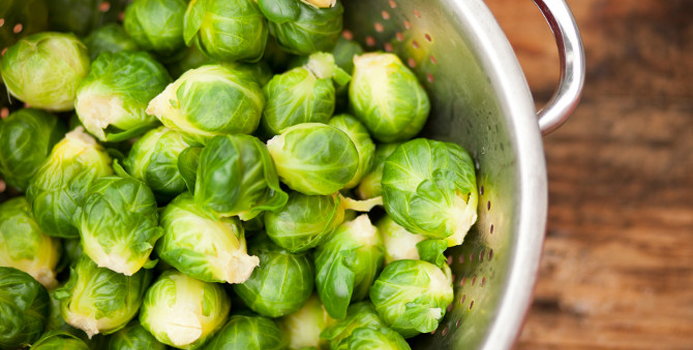Brussel sprouts are a cultivated bunch of wild cabbage that are selected for their leafy and small green buds, green buds which commonly just look like mini cabbages. Brussel sprouts are a long-storied vegetable because their forerunners have been around since Ancient Rome, where they were already cultivated at that time. Unsurprisingly, the modern version of Brussel sprouts as they are known today began to be grown in Belgium, sometime in the 13th century.
While you may not enjoy this vegetable taste-wise, it is important that you eat more Brussel sprouts in your diet . Here is an upcoming list of the three reasons you should be eating Brussel sprouts.
1. Sulforaphane
If you are concerned about getting cancer or merely concerned with warding it off, you will want to learn everything you can about sulforaphane. It is a chemical that is thought to contain anti-cancer properties, and this is thought because of research and studies establishing a link between this chemical and anti-cancer properties. Interestingly, Brussel sprouts are not the only vegetable that are thought to feature this amazing chemical; other brassicas like broccoli have properties that exhibit sulforaphane also.
If you want your Brussel sprouts to feature high levels of this chemical, be sure not to boil them. Instead, steam, stir-fy or microwave your Brussel sprouts, as these cooking methods do not cause a big loss of the anti-cancer effect of sulforaphane.
2. Sodium and Fat Content
Another reason you ought to be eating Brussel sprouts is simply that they are healthy for you in regards to the sodium and fat content, which are both quite low. For a serving that consists of 3.5 ounces, Brussel sprouts only include a negligible 0.3 grams of fat and a reasonably good 25 milligrams of sodium. Having a low sodium and fat content means that eating Brussel sprouts will be heart-friendly, among other things. Low fat content means a lot lower risk of fat accumulating around your arteries and causing you heart problems. Since sodium has also been linked with morbid diseases like hypertension, cardiovascular problems and edema, having a low sodium content in Brussel sprouts is comforting.
3. Good Source of Vitamin C
An important nutrient for people of all ages, vitamin C also functions as an antioxidant because it helps your body to fight off oxidative stress. Vitamin C is also a potent fighter against the common cold; however, it may not be what you or most people think. Vitamin C has probably been embellished as a vitamin that actually reduces the severity of the common cold. In reality, it only helps to lower your chances of contracting the common cold.



